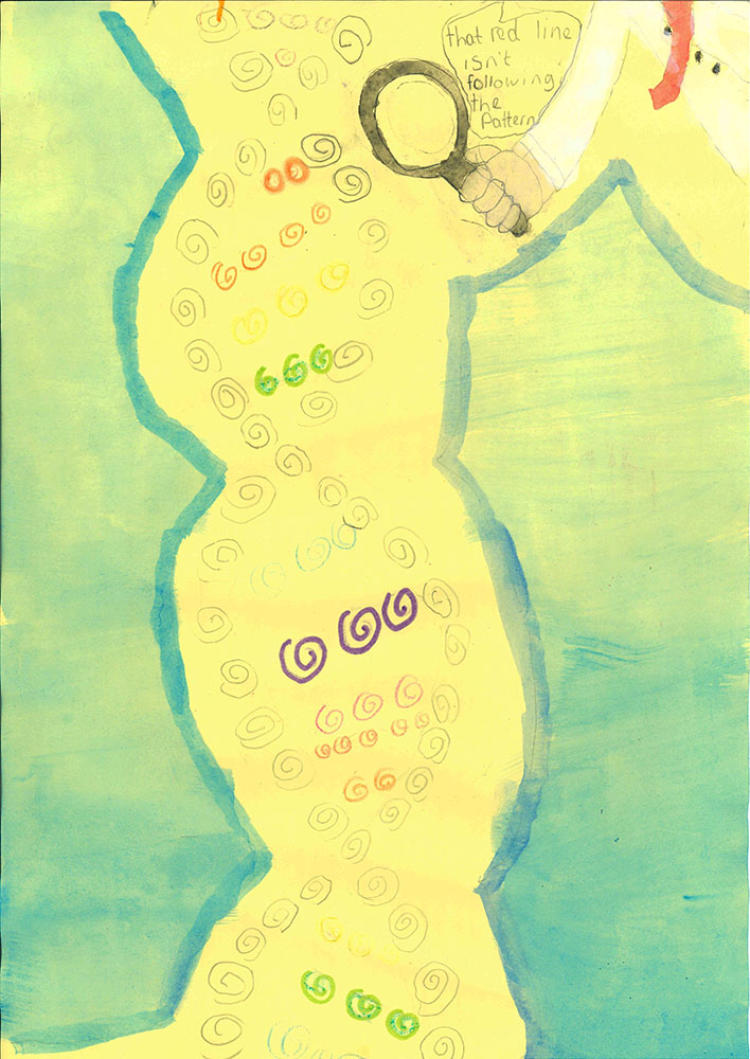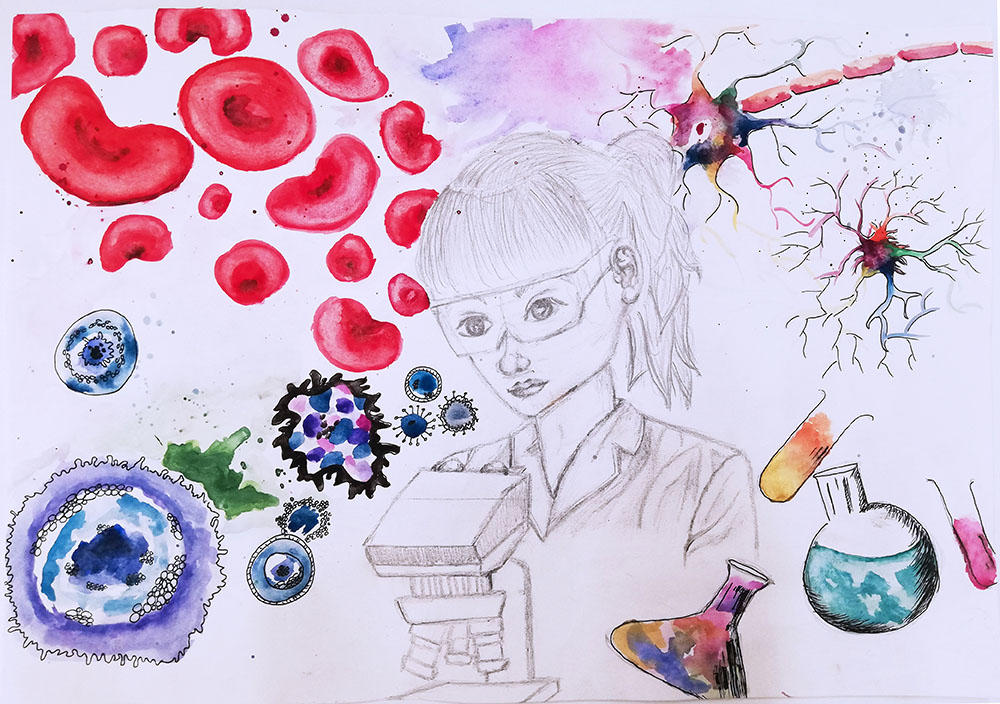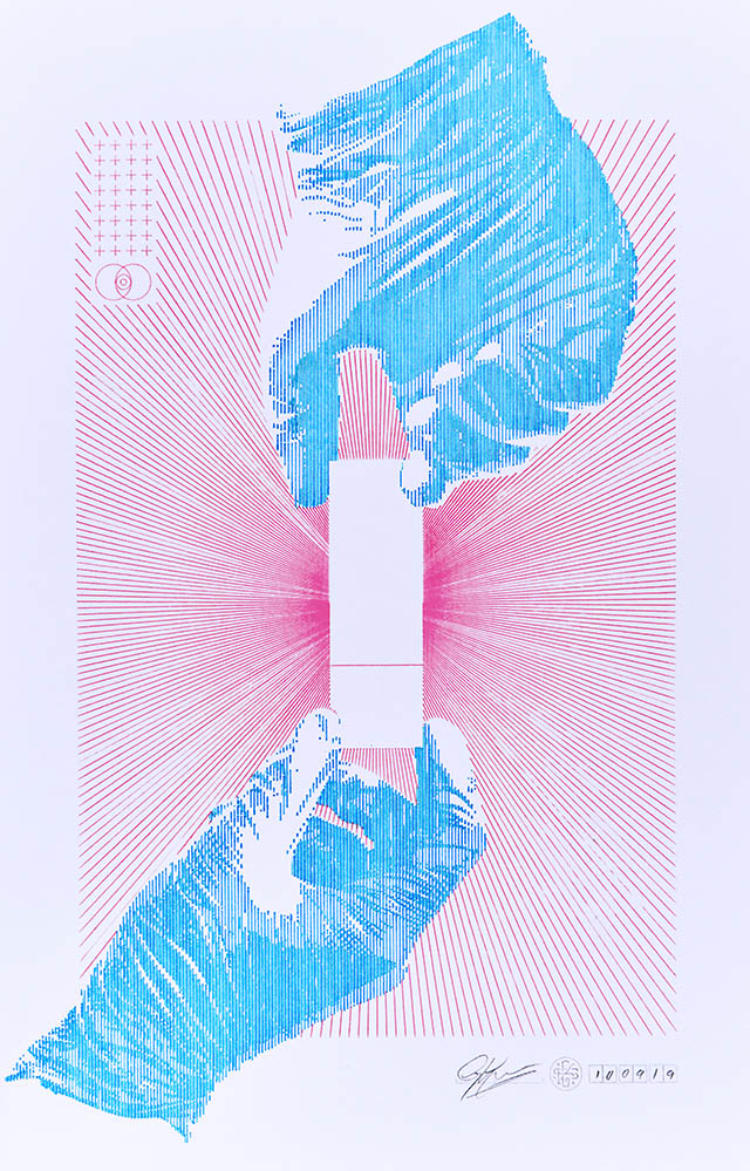The College’s Art of Pathology Competition celebrates creativity in science and medicine. This year’s theme was ‘Pathology: a new point of view’. Thank you to everyone who entered and to the judges who had the difficult job of selecting the three category winners from the fantastic entries we received.
Congratulations to the three category winners, whose entries are shown below. The full list of winners, runners up (highly commended) and commended entries can be found on our Art of Pathology competition page.
Feeling inspired to get creative? The competition will be opening again in Spring 2020 with a brand new theme. Why not submit an entry?
Under 11s category winner: ‘It’s in the Genes’ by Carys Logie

Caption: My picture shows DNA and the red line (the red line that the magnifying glass is pointing to/nearest to) isn’t following the pattern. The pattern is swirls but the line has circles so it’s wrong. I coloured by background dark to light with a scientist in a nice white jacket.
11–18s category winner: ‘From a Microscopic View’ by Jasmine Claire Farrer

Caption: Pathologists hold a unique and powerful view, down the microscope, into a world of wonder of tissues, cells but also into the world of disease, its causes and effects, through bacteria, viruses, and other invaders or abnormal conditions. This unique view is not only for research purposes but provides the chance for the pathologist to understand the disease and potentially provide powerful clues and insights towards a diagnosis and cure for a patient. Who would think that the view through the microscope could be life changing?
Adult category winner: ‘Handshake’ by Gautham Kumar
Pen drawing, three pigment inks on paper 210 x 290 mm

Caption: “Take a look at this,” you say passing a slide. This one is particularly interesting. When pathologists share observations and ask questions, ambiguity is resolved, research is fuelled, and cases are cracked. The person beside you has a New Point of View and that could make all the difference.

